Are Pet Pigs DESTRUCTIVE? (All About Pet Pig Behavior)
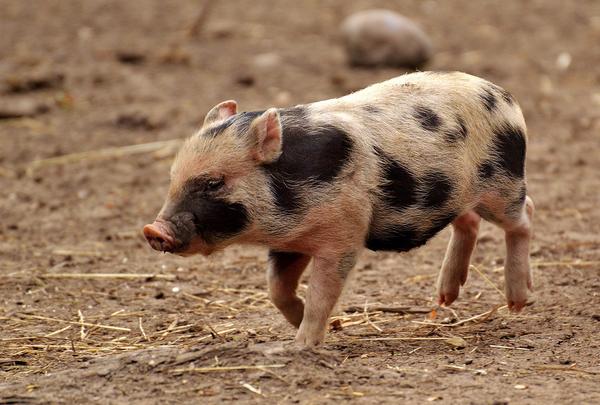
Got a soft spot for pigs but worried their cute snouts might turn your house into a demolition site?
I hear ya.
You're not alone in questioning whether pet pigs are more wrecking ball than loyal companion. 🐷
Let's dive in and settle this once and for all.
Ready?
Let's go!
The Destructive Power of a Bored or Hungry Pig
Bored or hungry pigs can be incredibly destructive due to their high intelligence and ability to experience emotions like loneliness and boredom. To prevent this behavior, provide mental stimulation through interactive toys and puzzles, and ensure a varied diet that excludes meat but includes fruits, veggies, pig pellets, grass, and insects.
Taking care of your pet pig is crucial to prevent their destructive behavior.
Loneliness and boredom can really affect them, so you need to keep them happy.
Providing interactive toys and puzzles will keep their clever minds occupied. Trust me, they'll appreciate it.
But mental stimulation isn't the only thing they need.
Giving them a diverse diet is essential.
Fruits, veggies, grass, insects, and those beloved pig pellets should be included. Just remember to skip the meat because pigs are herbivores.
Now, let's talk about aggression.
If your pig starts getting aggressive, it could be due to illness or mistreatment.
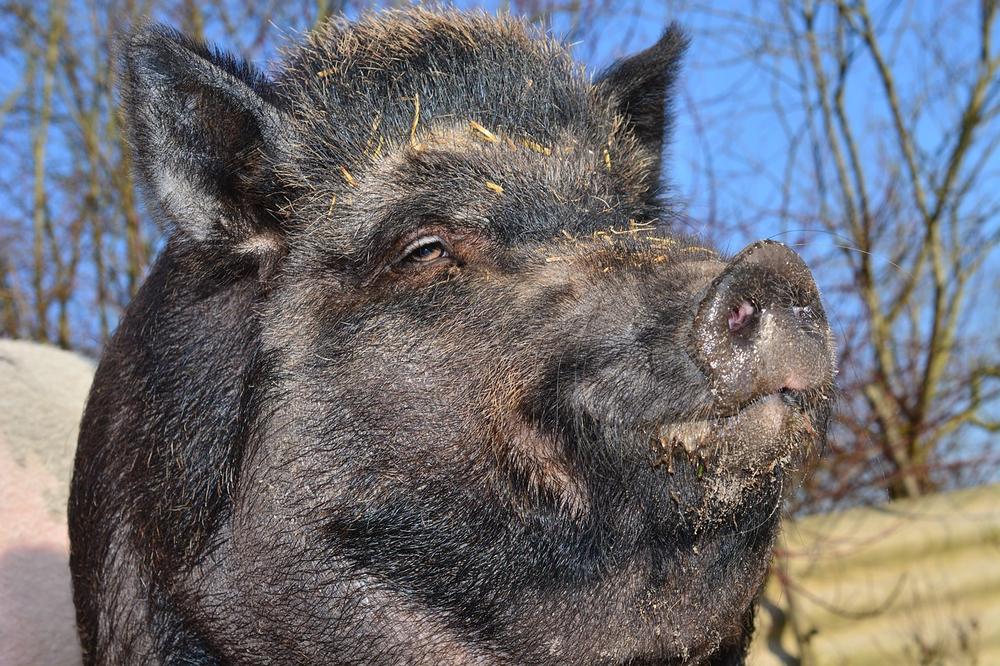
Remember, pigs have feelings too.
They can get sad and even cry real tears...
You should handle them with care, avoid punishment, and show them patience and understanding instead.
Oh, and don't forget about their sense of smell.
Pigs may have poor eyesight, but their sharp sense of smell makes up for it.
And crying tears when they're sad?
It's like they were made for drama!
One last thing, my friend. If your pig always seems hungry, don't worry.
It doesn't mean you're not providing enough food.
Pigs are naturally curious creatures who love pushing boundaries.
Their bottomless appetite can actually be a sign that they're content and comfortable by your side.
Environment and Housing for Miniature Pet Pigs
Miniature pet pigs have specific environmental and housing needs that must be met for their well-being.
To ensure the comfort of your pet pig, here are some practical tips to consider:
- Create designated areas for sleeping, elimination, and eating in your home. This helps pigs establish a routine and feel secure.
- Provide comfortable bedding and flooring in these designated areas. Soft materials like straw or blankets can make pigs feel cozy.
- Make sure the environment is clean and organized. Pigs prefer cleanliness and get stressed in messy surroundings, which can lead to destructive behavior.
- Loneliness and mistreatment can cause negative behaviors in pigs. Consider getting a companion pig or having multiple pigs to promote good behavior and social interaction.
- Pay attention to environmental factors such as temperature. Pigs cannot tolerate extreme temperatures and should be kept in moderate warmth or coolness (around 18.3°C to 23.9°C or 65°F to 75°F).
- A sufficient amount of space is important. Aim for around 2 acres for pigs to roam and explore, preventing boredom and promoting exercise.
- Regularly remove feces from the yard to maintain cleanliness and prevent health issues.
- Be aware of toxic household and garden plants that could harm your pet pig. Check with a veterinarian for a comprehensive list.
- Newborn pigs require extra care and protection. Provide shelter, straw or blankets for warmth, and a wading pool for them to cool down.
But that's not all - there's another important aspect to address when it comes to pet pigs.
Curious to know how you can keep your pig active and engaged?
Let me introduce you to the next crucial step in ensuring your furry friend's well-being...
Engaging Activities and Outdoor Exploration for Miniature Pet Pigs
Engaging Activities and Outdoor Exploration for Miniature Pet Pigs:
Keeping your pet pig active and engaged is essential for its well-being.
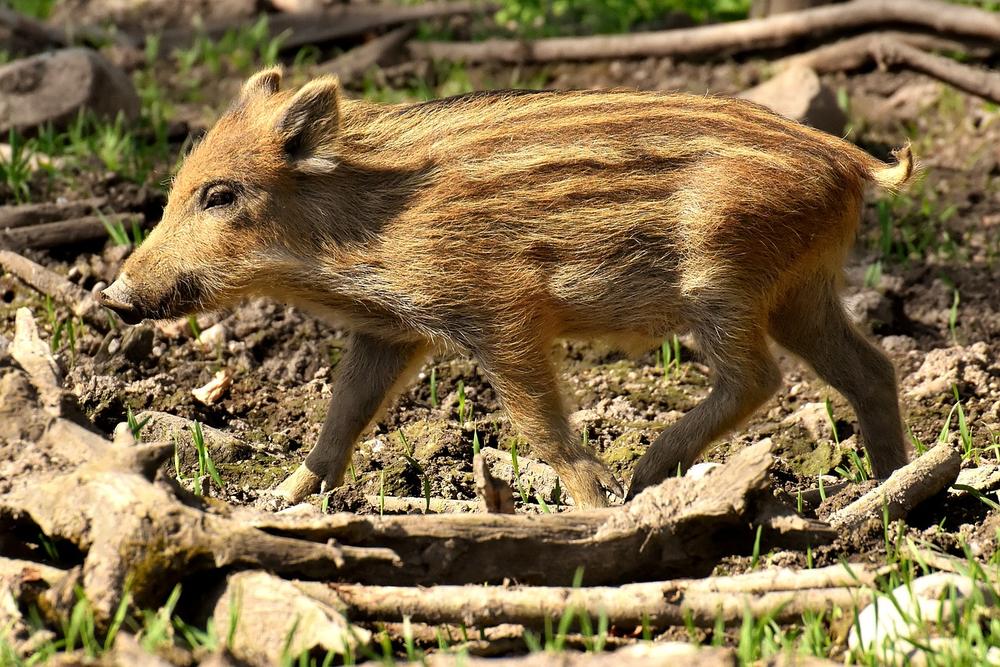
Here are some engaging activities to try with your miniature pig:
- Create an obstacle course: Set up a mini obstacle course in your backyard or living room using pillows, tunnels, and small ramps.
- Food puzzles: Hide treats or pellets inside toys or cardboard boxes for your pig to find and solve.
- Play in water: Fill a kiddie pool with shallow water and let your pig enjoy a splash. It's a great way for them to cool off on hot summer days!
- Tug of war: Play tug of war games with ropes or soft toys to help strengthen your pig's muscles.
- Walking adventures: Take your pig for regular walks around the neighborhood or nearby parks to keep them physically active and mentally stimulated.
- Nature exploration: Allow your pig to explore natural environments safely and securely. Supervise them while they root in the soil, search for bugs, or play in a designated area.
- Nose work games: Hide favorite foods or toys around the yard or house for your pig to sniff out using their powerful sense of smell.
- Teach new tricks: Use positive reinforcement training to teach your pig simple commands like sit, stay, or spin. This helps stimulate their mind and builds a stronger bond between you.
Pigs are intelligent creatures that thrive on physical and mental stimulation.
Keep their routines interesting and fun, and both you and your pet will enjoy the benefits!
Now that you've learned about engaging activities and outdoor exploration for miniature pet pigs, there's one more resource I highly recommend you checking out.
Dental Care for Miniature Pet Pigs
Regular dental inspections are crucial for miniature pet pigs. While trimming newborn piglets' teeth is rarely necessary, the permanent canine teeth should be cut every 6-12 months to prevent future pain and injury. Proper handling and regular check-ups with a trusted veterinarian are essential for maintaining their dental health.
But let me tell you, taking care of a pet pig's teeth isn't as complicated as it sounds.
In fact, with a little bit of knowledge and proper handling, you can keep your miniature pet pig's dental health in tip-top shape.
So here's the deal:
You don't need to worry about those tiny needle-like teeth that newborn piglets have. They usually don’t cause any trouble and won't require trimming.
However, once their permanent canine teeth grow in, that's when you'll want to pay attention.
Those canine teeth can get sharp!
And if left untouched, they could potentially lead to pain or injury for your pet.
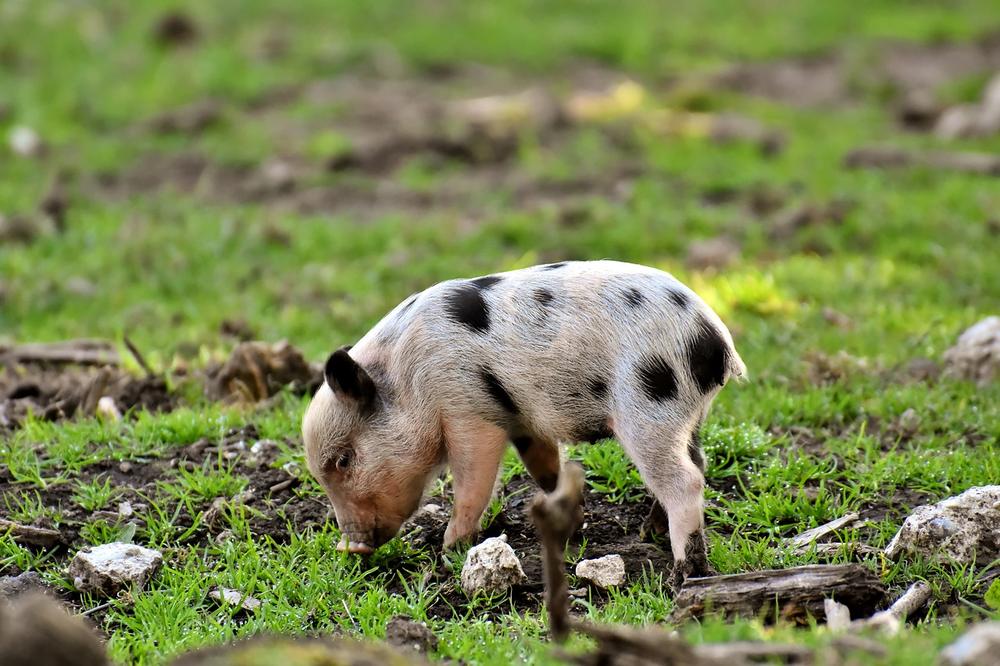
Nobody wants that, right?
So you have to schedule regular dental check-ups every 6-12 months to get them trimmed.
And speaking of check-ups...
Make sure you find yourself a trusted veterinarian who is experienced in treating pigs. They'll know exactly what to look for during these inspections.
Now, one thing you need to be mindful of is how you handle your pet pig's nose. You see, their snouts are highly sensitive, and touching them incorrectly can cause discomfort.
So be gentle and avoid putting pressure on their precious noses.
Regularly inspecting your pig's teeth will help identify any dental issues that may need attention. This not only ensures their all in all dental health but also keeps them happy and pain-free.
The key to a healthy piggy smile is proactive dental care.
By staying on top of things and working hand-in-hand with your veterinarian, you’ll ensure that your pet pig enjoys a lifetime of good oral hygiene.
Preventing Complications: The Importance of Regular Nail and Hoof Care for Miniature Pet Pigs
Inspecting and trimming your miniature pet pig's hooves is essential to keep them healthy and prevent complications.
Overgrowth of their nails can lead to problems such as gait abnormalities and joint diseases, so regular hoof maintenance is crucial for prevention. Make it a habit to check your pig's hooves frequently and trim them appropriately if you notice any overgrowth.
By taking these simple steps, you can ensure that your beloved pet remains happy and free from the discomfort caused by overgrown hooves.
Don't neglect this important aspect of their care.
Vaccinations and Parasite Control for Miniature Pet Pigs
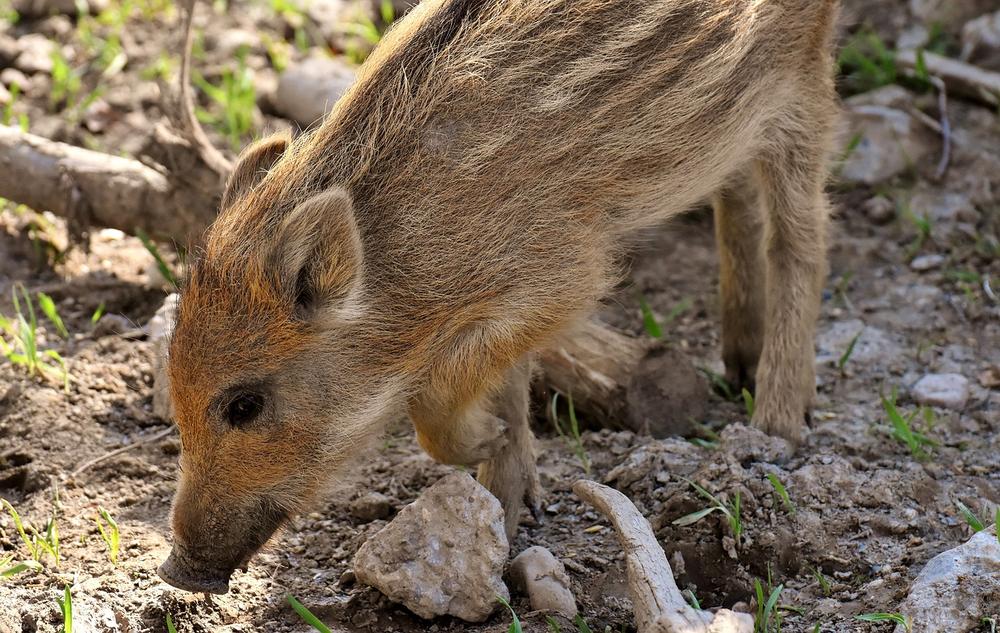
What you should know about vaccinating and preventing parasites in your miniature pet pig:
- Talk to your vet: They'll give you the most current vaccination information based on where you live.
- Understand local rules and regulations: Make sure you're allowed to have a pig as a pet in your country.
- Registration might be necessary: Depending on where you are, it may be required for your pig's safety and your peace of mind.
- Vaccinate regularly: Just like any other pet, your tiny pig needs vaccines to stay protected from harmful germs.
- Be aware of parasites: Miniature pigs can easily get infected by parasites inside and outside their bodies. Stay informed and prevent these infestations.
- Regular vet visits: Make appointments with your vet on a regular basis to keep an eye on your pig's health and catch any problems early.
Ensuring Destructive-Free Bliss for Miniature Pet Pigs
Summary of Summaries:
- Proper care and attention are necessary to prevent destructive behavior in pet pigs.
- Provide a balanced diet and avoid meat to prevent diseases.
- Aggressive behavior can be caused by mistreatment or illness, avoid punishment.
- Pigs have poor eyesight, but a great sense of smell. They can cry tears when sad or depressed.
- Miniature pet pigs have specific needs for their well-being and behavior.
- Pigs prefer cleanliness in their environment and may exhibit destructive behavior in messy surroundings.
- Loneliness and mistreatment can cause negative behaviors in pigs.
- Providing a companion pig and having multiple pigs can promote good behavior.
- Pigs have designated areas for elimination, sleeping, and eating in indoor-housed settings.
- Insufficient social interaction and underenriched environments can lead to aggression.
- Pigs need moderate warmth or coolness and a clean, dry, and draft-free environment.
- Access to the outdoors is important, as well as daily exercise for physical and mental well-being.
- Positive reinforcement training techniques should be used to teach behaviors and discourage aggression.
- Avoid touching a pig's sensitive nose improperly and consider dental care for permanent canine teeth.
- Regular nail trimming is necessary to prevent gait abnormalities and joint disease.
And that's all for today folks.
Before you leave, can I ask you something? Did my blog post help you out? If it did, it would mean a lot to me if you could share it with your loved ones. You just have to click on any of the social media sharing icons and instantly spread the word. Thank you so much!
Until next time,
-Chris Campbell